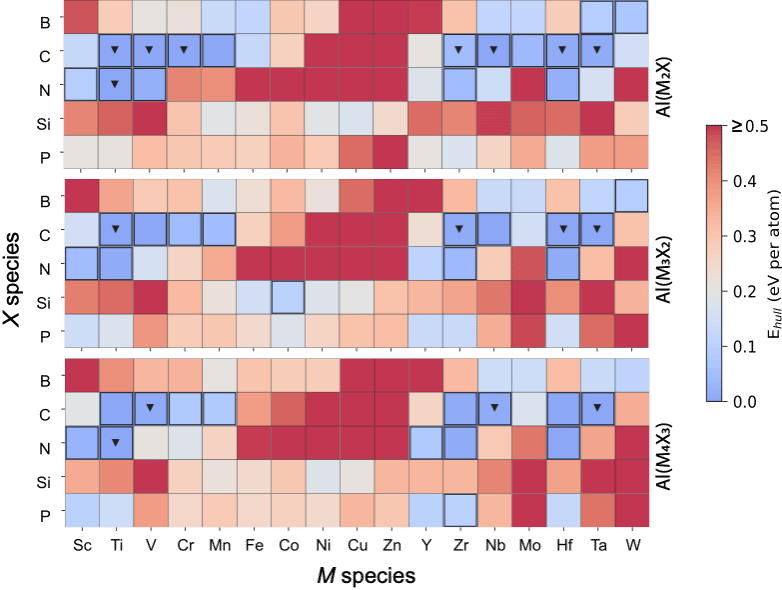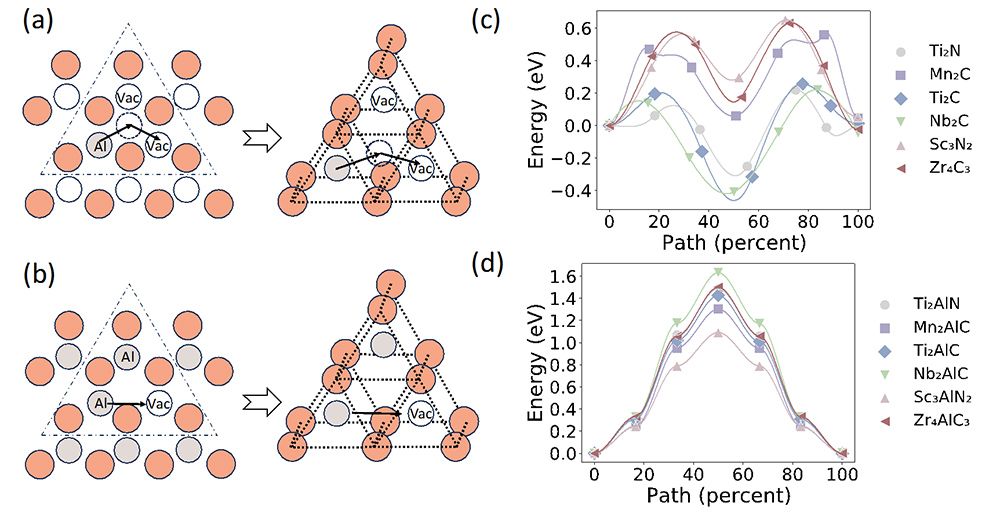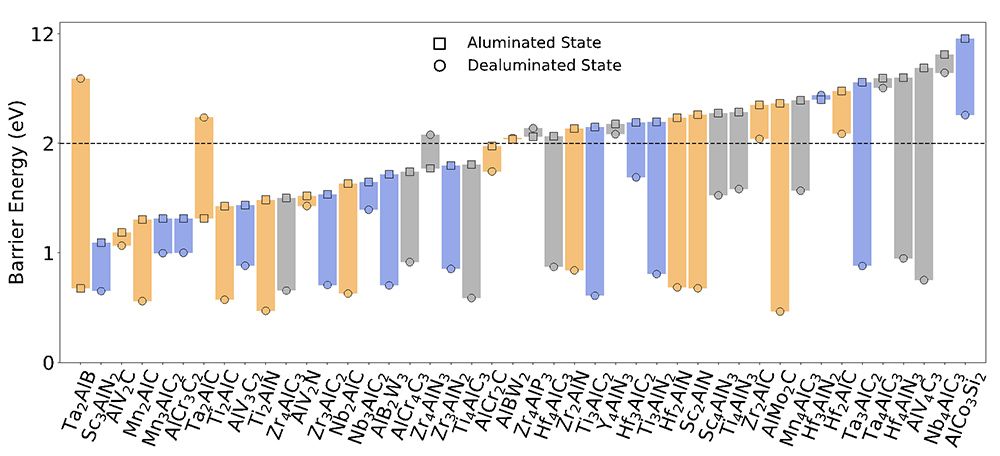
HOME >> OUR RESEARCH >> Content
Computational Investigation of MAX as Intercalation Host for Rechargeable Aluminum-Ion Battery
Author:
Time:Nov 29,2023
Click:

Layered carbides and their analogs with MAX phase (general formula AMn+1Xn) have emerged as promising candidates for energy storage and conversion applications. One frontier for energy storage is using MAX as an Al-ion intercalation electrode. Given that many MAXs have Al as the A sites, the structure can potentially serve as a stable host for Al intercalation. Here in this work, 425 ternary MAX Al-ion battery electrodes are computationally enumerated. Specifically, first principal phase diagram calculations are performed on the combinatorial space of 17 types of typical transition metals, five types of anions (C, N, B, Si, and P), three types of stoichiometries (n = 1, 2, and 3) and two types of layered stackings (α and β). Among all the ternary MAX materials, 44 candidates show reasonable synthetic accessibility, and six with extraordinary performance are predicted to be promising Al-ion battery electrodes. With the phase stability, and electrochemical performance (average voltage, theoretical capacity, energy density, and Al diffusion barrier), the work provides a comprehensive computational assessment of the great opportunities behind MAX-based Al-ion batteries.



Source:
Computational Investigation of MAX as Intercalation Host for Rechargeable Aluminum-Ion Battery
(https://onlinelibrary.wiley.com/doi/10.1002/aenm.202302584)

Copyright © Preparation Office, Nanjing University-School of Sustainable Energy and Resources All Rights Reserved | 苏ICP备10085945

